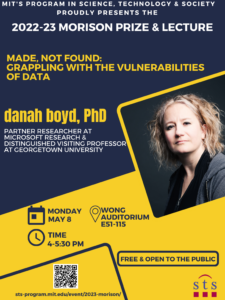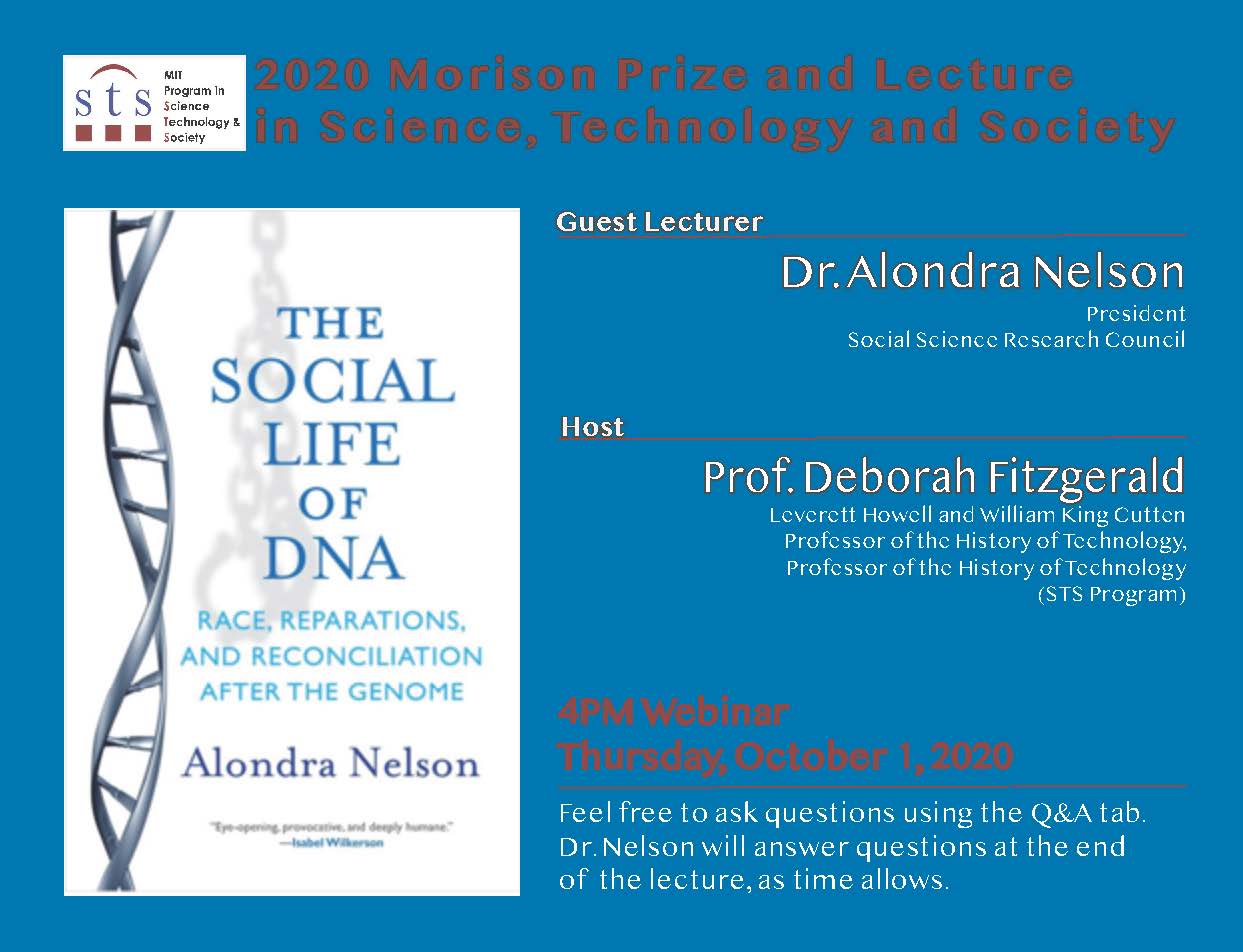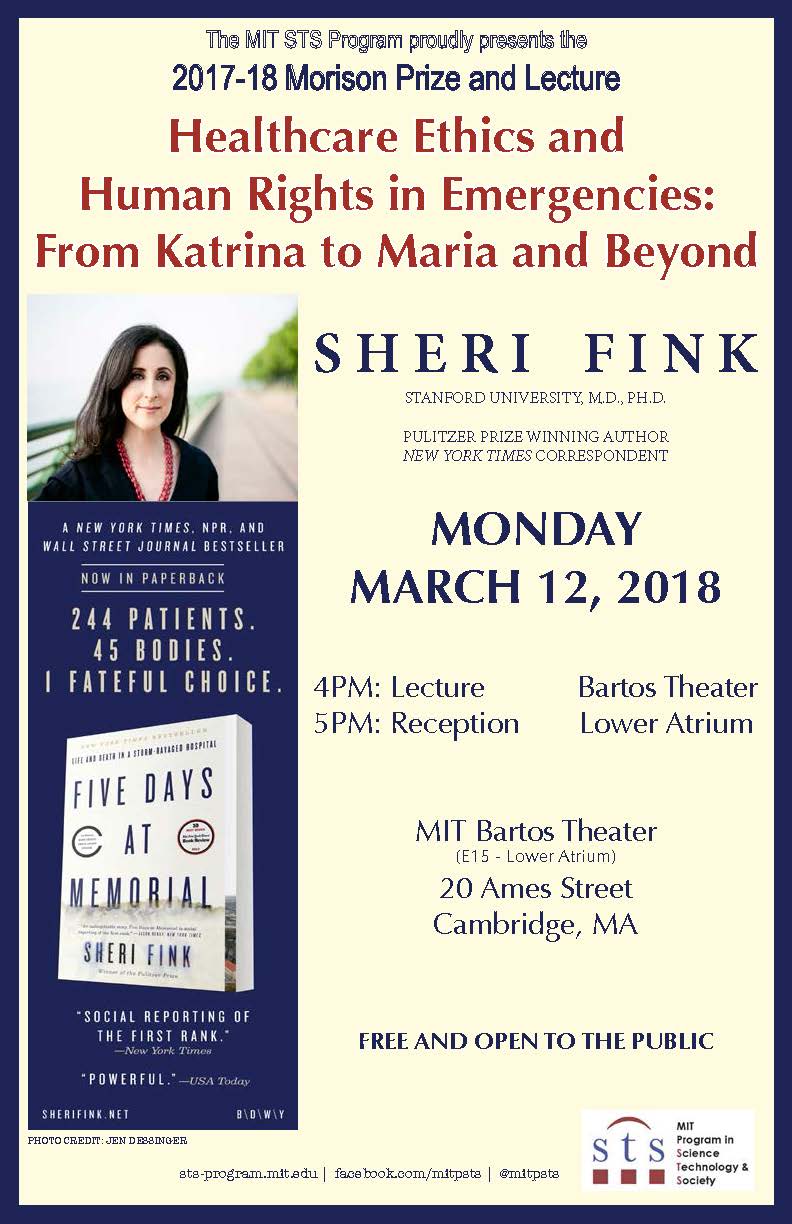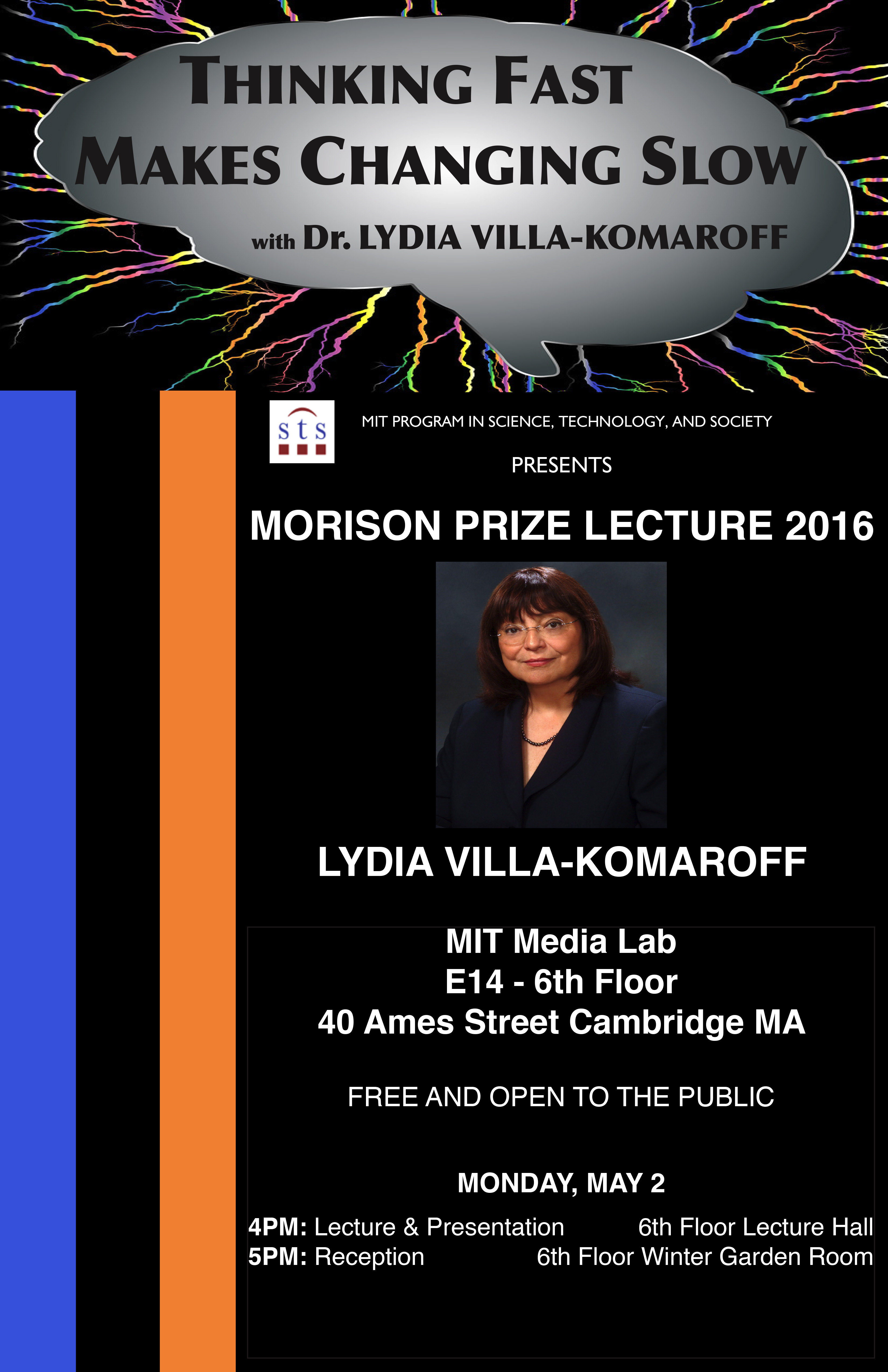MIT News (April 12, 2000): Morison Lecture and Prize in Science, Technology and Society
The family of the late Professor Elting Morison, a founder of the Program in Science, Technology, and Society (STS), his late brother Robert, who also taught in STS, and their brother John Morison and his firm, the Hitchiner Manufacturing Co., have given MIT a $500,000 endowment to establish the Morison Lecture and Prize in Science, Technology and Society.
The winner of the annual $10,000 prize is chosen by representatives of the School of Engineering, the School of Humanities and Social Science, and the Morison family. It is believed to be the largest prize of its kind.
The prize will be given each year to an outstanding individual who embodies the Morison family ideal of combining humanistic values with effectiveness in the world of practical affairs, and in particular, in science and technology.
The gift recognizes the technical and societal accomplishments of several generations of the family and of the engineers of the Hitchiner Co., as well as the contributions of MIT faculty members and graduates to the growth and success of that firm, a multinational foundry specializing in high-tech alloys.
“The Morison lectureship creates a wonderful new opportunity for integrating knowledge from the humanities and engineering and for tying the Schools of Humanities and Social Science and Engineering closer together. We are enormously grateful to the Morison family, whose connections to MIT span the humanities and engineering, for encouraging our latest collaboration,” said Philip S. Khoury, dean of the School of Humanities and Social Science and professor of history.
“John Morison and his family have shown remarkable generosity and vision in bringing about this grand collaboration between our two schools. Where could be a better place than MIT to seek the fruits of new interactions between engineering and the humanities?” said Merton Flemings, co-director of the Singapore-MIT Alliance and the Toyota Professor of Materials Science and Engineering.
MIT was chosen because of its world leadership in science and technology and also because of its dedication to broader societal and human well-being, Professor Flemings said. MIT faculty and graduates have worked closely with Hitchiner Manufacturing founder John Morison.
Among the descendants of the Morisons who emigrated from Scotland to New Hampshire in 1720 is the late Elting E. Morison, one of the nation’s most distinguished historians, a founder of STS and a member of the MIT faculty for 35 years.
Professor Morison died in 1995. The Elting E. Morison Professorship, a chair in the School of Humanities and Social Science, was established in 1997. Renowned Japan scholar John W. Dower, who yesterday was awarded the Pulitzer Prize, is the first holder of the chair.
Professor Morison, who held the Elizabeth and James R. Killian Class of 1926 Professorship, commanded wide attention for more than half a century with his writings on the social, political, intellectual and industrial history of the United States. The Boston Globe, reporting his death, called him “an educator and industrial historian who believed that technology could only be harnessed to serve human beings when scientists and poets could meet with mutual understanding.”
His elder brother Robert, a distinguished physician, was vice president of the Rockefeller Foundation and dean of biological sciences at Cornell before coming late in his career to MIT, where he taught for 10 years.
Another direct descendant, Samuel Eliot Morison (Harvard Class of 1908), the well-known historian, became, at the age of 34, the first American appointed a full professor at any British university. While in his Oxford chair, he wroteThe Oxford History of the United States. It was the first history of the US written for British readers and soon became a standard on both sides of the Atlantic.
A version of this article appeared in MIT Tech Talk on April 12, 2000.



